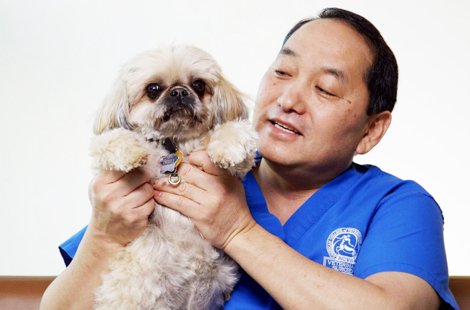The 9 Most Common and Serious Canine Diseases and Ailments
A large part of being a good dog owner means taking care of your pet’s health. That means making sure your dog’s food is healthful and nutritious, going for long walks every day, playing at the dog park, and of course giving your pup plenty of love and attention. It also means taking care of his or her health by scheduling regular visits to the vet for checkups, and monitoring them for signs of disease or ailments.
No one knows your dog better than you do. You know how he or she walks, sleeps, and eats. That means you are your pet’s first line of defense. It’s important to pay attention to your dog’s sleeping, eating, and exercise habits. Sudden changes may indicate a medical issue that ought to be checked out by VRC, your local veterinary specialist in Philadelphia. Here are ten of the most common dog health issues we see, and some of the early symptoms:
• Gum Disease: Just like you and your children, dogs can get gum disease. If you notice that your dog’s gums are bleeding, red, or swollen, or that they’re eating in a way that indicates gum tenderness, it’s time for a checkup.
• Flea- and Tick-Borne Diseases: Dogs go outside, which means they’re susceptible to painful bites from fleas and ticks. But fleas and ticks also carry disease. Dogs that have sudden fevers, or diarrhea, vomiting, and reduced appetite, may have caught something from a pest.
• Obesity: Overweight and overfat pets are at risk for many types of illnesses.
• Arthritis: Dogs may show signs of arthritis by exhibiting a change in gait, an aversion to going up stairs, or difficulty walking or standing, making sounds of pain when being picked up, or demonstrating a general reluctance to move.
• Diabetes: In dogs, the first signs of diabetes can include increased or frequent thirst, weight loss, increased urination or urge to urinate, and fatigue.
• Blindness: Cataracts aren’t just something that affect humans. If your dog seems disoriented, or can’t find their way around, it may be time for an eye exam.
• Kidney Disease: Kidney diseases in dogs may manifest as an urge to urinate more, having accidents in the house, and drinking more water.
• Heartworms: If your dog is reluctant to move, seems fatigued, and is plagued by a persistent cough, it’s time to call the vet.
• Cancer: Early signs of cancer include lumps or bumps on a dog’s body, sudden changes in weight, and tiredness.
If your pet is diagnosed with cancer, the experienced oncology team at VRC in Malvern, PA will stage your pet’s cancer and treat their disease. When you bring in your pet for oncology at VRC your dog will receive comprehensive diagnostics and care so that they receive the most effective medical care available. We take a multidisciplinary approach to treating your dog’s cancer, and will recommend a host of treatments that improve your pet’s quality of life while supporting the healing process.
The oncology department at VRC in Malvern, PA specializes in cancer care for your pet. We take your pet’s health seriously. If you see an early sign of disease, give us a call at (610) 647-2950.






 Email
Email But we all know that sometimes that isn’t the case. While it’s easier than ever before to look up something like “veterinarian in Philadelphia,” sometimes we’re spoiled for choice by the results. It can be hard to sift through everything, especially if you’re looking for something like a veterinary specialist in Philadelphia.
But we all know that sometimes that isn’t the case. While it’s easier than ever before to look up something like “veterinarian in Philadelphia,” sometimes we’re spoiled for choice by the results. It can be hard to sift through everything, especially if you’re looking for something like a veterinary specialist in Philadelphia.
